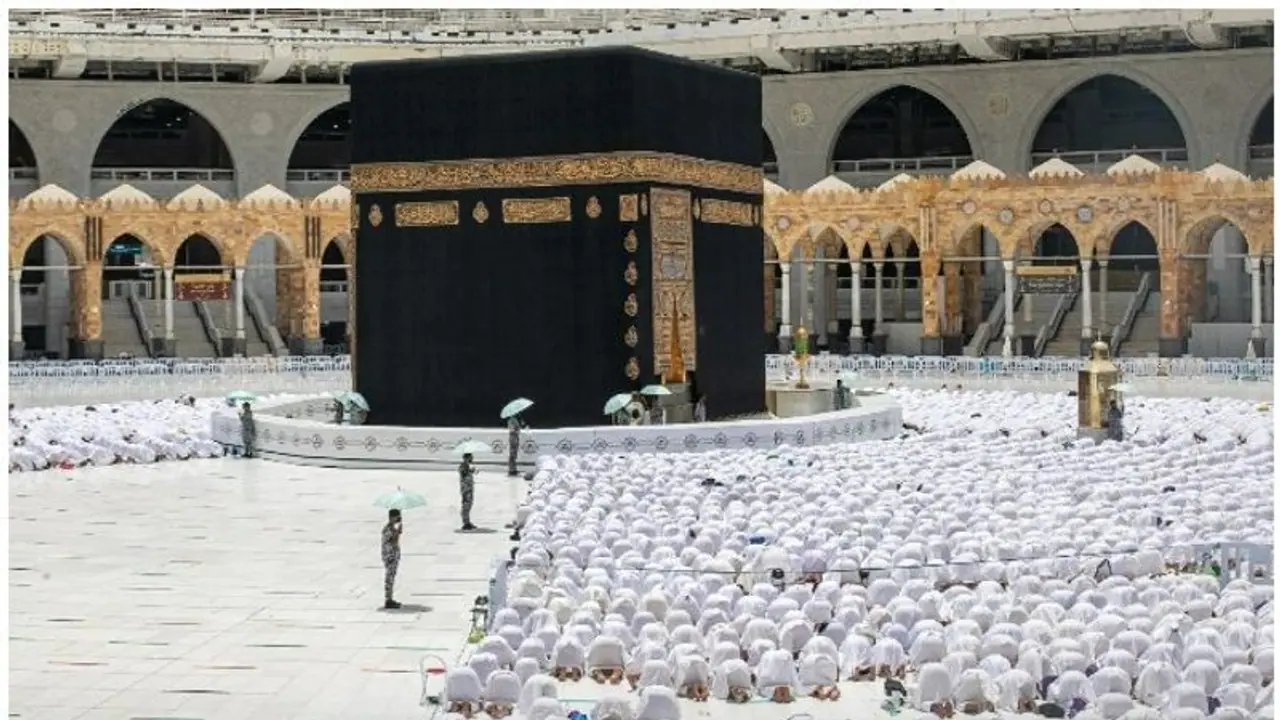Hajj begins on the eighth day and ends on the twelfth day of Dhu al-Hijjah, the Islamic calendar's twelfth month.
Saudi Arabia has finally eased travel restrictions after restricting the annual Islamic ritual of Hajj to a few thousand Muslims living within the country for the last two years due to the Covid-19 pandemic. It allows 1 million pilgrims from within and outside the kingdom to perform the Muslim pilgrimage to the Kaaba, the "House of God," in the sacred city of Mecca. Hajj to Mecca is one of Islam's five pillars, and it is only obligatory for those who are physically and financially able to do so.

The fifth and final pillar of Islam is likely to be performed at least once in the lives of Muslims, in which they forego overt displays of wealth and materialism, dress in simple white clothes, and complete the rituals. The Day of Arafah, observed on the second day of the Hajj pilgrimage, is the holiest day in the Islamic calendar.
While Eid-ul-Adha or Bakra Eid is the second most important festival celebrated by Muslims worldwide, the Day of Arafah, which falls on the tenth day of the Islamic month of Zul Hijjah, is considered the most important because it is the day of repentance. Here's everything you need to know about the date, history, and significance of Hajj, or Muslims' pilgrimage to Mecca in Saudi Arabia.
About Hajj 2022 date:
Hajj begins on the eighth day and ends on the twelfth day of Dhu al-Hijjah, the Islamic calendar's twelfth month. This year, Hajj will start in the evening on Thursday, July 7, 2022, and conclude in the evening on Tuesday, July 12, 2022.
About Hajj history:
A visit to Mecca's holy shrine of Kaaba has a remarkable history. Muslims believe that God told Prophet Ibrahim or Abraham, God's dearest friend and father of prophets, to leave his wife Hajar and son Ismail in the desert of Mecca.
Ibrahim left the family well-fed, but it all faded over time, and his wife Hajar and son Ismail faced many difficulties. Hajar travelled seven times between the hills of Safa and Marwah on one occasion but could not find a water source.
When young son Ismail rubbed the ground with his foot, a water fountain appeared on the spot. This location was then designated as sacred, and God instructed Ibrahim to construct the Kaaba there and invite people to perform pilgrimage there.
Ibrahim and Ismail followed the instructions, and the Quran even describes how the archangel Gabriel brought the Black Stone from heaven to be attached to the Kaaba (which was originally white but has turned black by absorbing the sins of the thousands of pilgrims who have kissed and touched it).
Some pagan idols were later placed around the Kaaba during pre-Islamic Arabia's "jahiliyyah" period, but in 630 CE, Prophet Muhammad (PBUH) led the believers from Medina to Mecca and cleansed the Kaaba by destroying all the pagan idols. He was yet another messiah and Islam's final prophet.
After cleansing the Kaaba, he reconsecrated it to Allah and made his first and final pilgrimage there in 632 CE. Prophet Muhammad's sermon followed this to his followers on the rites of Hajj; thus, Hajj became one of the five pillars of Islam.
About Hajj significance:
Hajj facilitates and tends to bring together Muslims from all over the world in a spirit of unity and brotherhood, with no discrimination based on caste, culture, or colour, a true representation of equality. It is believed that whoever performs the Hajj rites truly and with purity returns home with all their lifelong sins washed away.
This annual pilgrimage ensures equality and rewards pilgrims with heaven after death if their obligations are fulfilled correctly. It represents kindness and positivity, and it is the highest form of honour earned because it is a re-enactment of Prophet Abraham's sacrifices and obedience to God Almighty, as instructed by Prophet Muhammad.
About COVID-19 rules:
1) Authorities have established health requirements for Hajj pilgrims from outside the kingdom to meet before entering the country.
2) Pilgrims must wear masks when visiting the Two Holy Mosques during Hajj.
3) As per reports, when pilgrims arrive, they will be provided with bedsheets, umbrellas, and other basic necessities. They must maintain social distance, good hygiene, and adhere to local health guidelines.
4) According to the General Authority of Civil Aviation, Hajj passengers must be under age 65, fully vaccinated against Covid-19, and provide a negative result from a PCR test taken within 72 hours of their departure flight.
Also Read: Hajj 2022: From lottery method to COVID protocols; here's everything you need to know
Also Read: For the first time, Saudi female officers allowed to guard Islam's holiest sites
Also Read: Happy Eid al-Adha 2022 Shayari: On Bakrid, share these shayaris with friends, family
